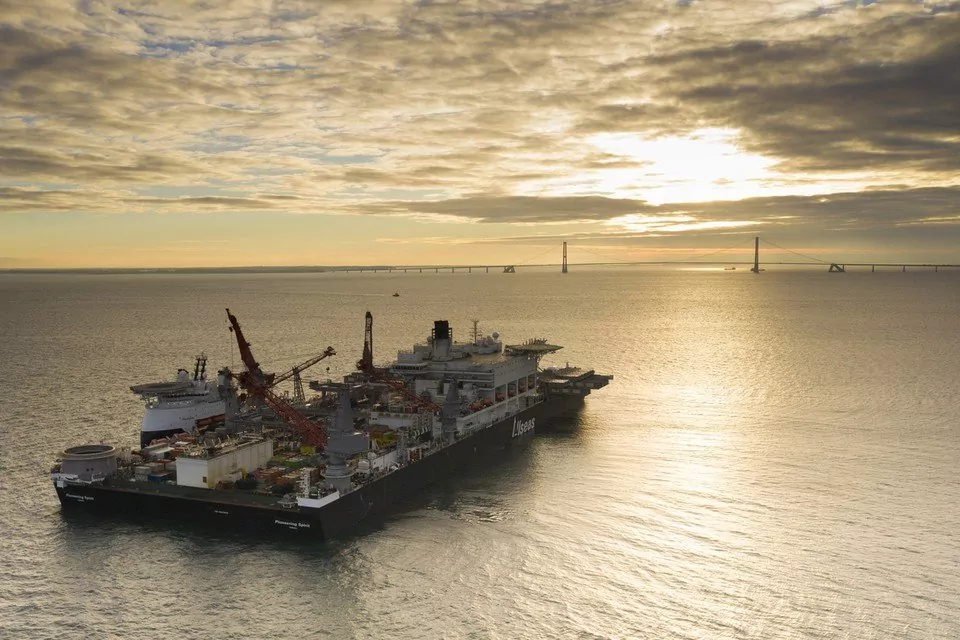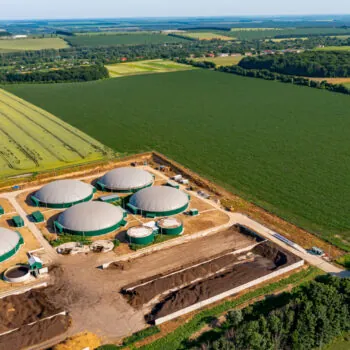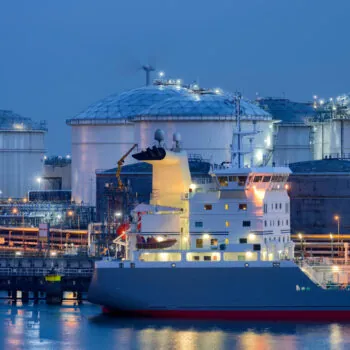Construction of Nord Stream 2, adding 55 billion cubic metres (bcm) to Germany’s annual gas import volume, had been a risky affair right from the beginning.
In 2015 when Germany and Russia agreed to build it, the EU defined its energy security through a reduction of its dependence on Russian gas, not an increase. And the outlook for Europe’s gas consumption as a result of the climate and energy policies in place then was uncertain at best.
Since then, the conditions for building additional gas infrastructure in Europe have only become worse.
If the outlook for gas consumption was uncertain in 2015, it no longer is now. The EU’s adoption of an even more stringent emission target of 55 per cent reductions by 2030 implies a steep reduction in gas consumption of approximately 30 per cent by 2030.
And in sharp contrast to 2015, when the EU sought to increase its energy security through a larger set of gas suppliers, it now considers a global energy transition the central goal of its energy diplomacy through the promotion of energy efficiency and renewables. EU’s foreign ministers explicitly recognise ‘that the nature of energy security is evolving from concerns about access to fossil fuels at affordable prices sourced on volatile markets, towards the need to secure access to the critical raw materials and technologies necessary for the energy transition whilst avoiding new dependencies, as well as ensuring resilient supply chains, cybersecurity and the protection and climate adaptation of all, and in particular, critical infrastructure.’
Nord Stream 2 has effectively developed into a hard bet against the EU’s core strategic and economic interests.
Construction of Nord Stream 2 hit rocky waters right from the start in 2017, with legal challenges by German environmental groups and political pressure from Germany’s partners in Central Europe as well as the US. Pressure from the latter in particular quickly escalated into sanctions against companies involved in the construction of the pipeline and has made finalization of the pipeline uncertain.
Nord Stream 2 has effectively developed into a hard bet against the EU’s core strategic and economic interests. It’s telling that an often-heard argument in support of finalising the pipeline has changed from ‘Europe needs this pipeline’ to ‘it probably was a mistake, but we might as well finish it now’.
The future of this pipeline is now likely to be decided through a dialogue between Germany and the US. Although the new US Administration under Biden has made no secret of the fact that it is as much opposed to the pipeline as Trump was, it has signalled a willingness to de-escalate and engage in negotiations, now ongoing.
With the German Green Party likely to enter government after federal elections in September and coming out strongly against Nord Stream 2, the current German government is now in a hurry to conclude its dialogue with the US with an outcome that allows Nord Stream 2 to be finalised. And the US government, keen to reset strained relationships with its partners, may well be inclined to oblige.
Doing so, however, would be a mistake. If anything, the US and Germany, but also the EU, should take this window of opportunity for a settlement on the controversial pipeline to agree to engage in a broader review process that would seek to align fossil infrastructure development with EU and US climate goals respectively. This would fit well in a renewed EU-US transatlantic agenda of cooperation that prioritises climate.
The US and Germany, but also the EU, should take this window of opportunity for a settlement on the controversial pipeline to agree to engage in a broader review process that would seek to align fossil infrastructure development with EU and US climate goals respectively.
The EU’s Foreign Affairs Council Conclusions which include a call for an immediate end to all financing of fossil infrastructure as well as one of President Biden’s first Executive Order for the US to identify steps through which the US can ‘promote ending international financing of carbon-intensive fossil fuel-based energy,’ while advancing sustainable development provide a good framework for such an agenda.
US involvement in EU energy politics so far has led to the US supporting alternative gas infrastructure that circumvents Russia such as the Three Seas Initiative. This may have been aligned with the EU’s energy security goals as defined in 2015. It is no longer the case today and has already contributed to an accumulation of stranded assets.
A reset in the US-German relationship should ensure a shift in focus from developing natural gas infrastructure to an aggressive build-out of renewables, energy storage and efficiency, in particular in Central Europe where development of renewables has been slow compared to rest of the EU.
And it will need to find a solution to the controversy over Nord Stream 2. Such a solution could be developed through a stepwise approach where, in a first step, Germany would agree to a moratorium on the construction works. It would use this time to ask the EU to reviews its gas-infrastructure needs in light of its Green Deal objectives with Germany committing to taking a final decision on the future of the pipeline informed by the outcome of such a review. The US for its part would commit to let such an assessment inform its own involvement in EU energy infrastructure developments, including the Three seas initiative.
Biden’s Climate Leader’s Summit on 22 April would provide a good moment for him and EU leaders to announce their commitment to such a new approach, sending a powerful signal to energy markets echoing EIB’s President Werner Hoyer: ‘Gas is truly over’.


